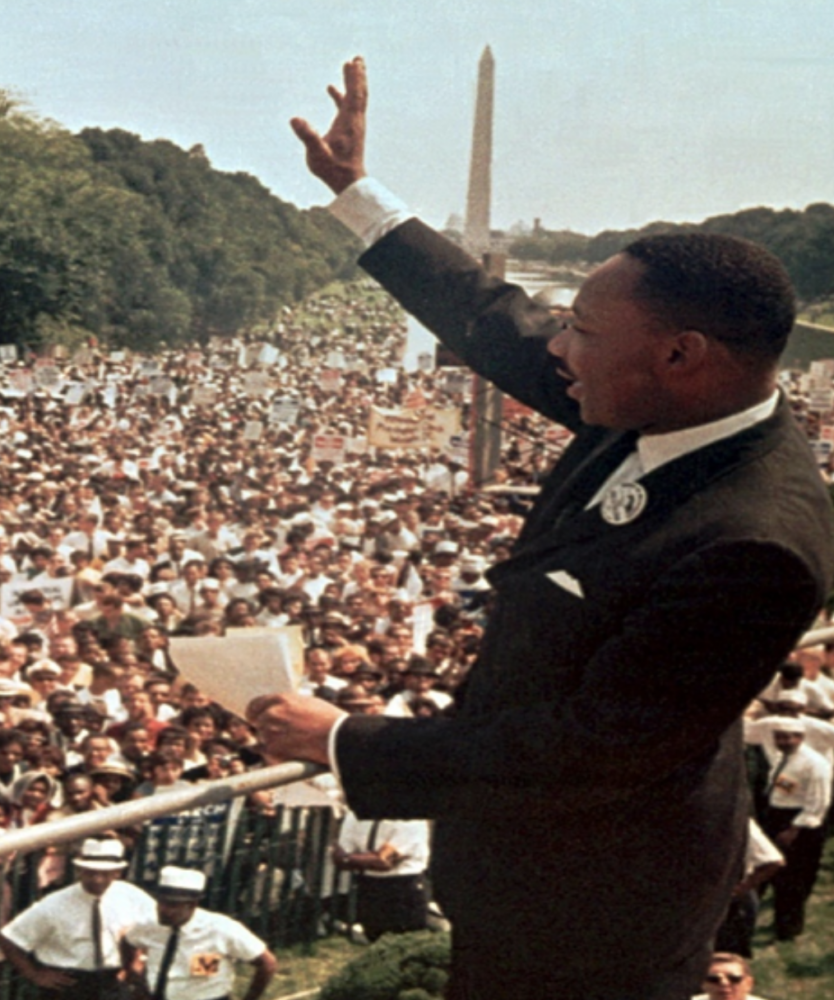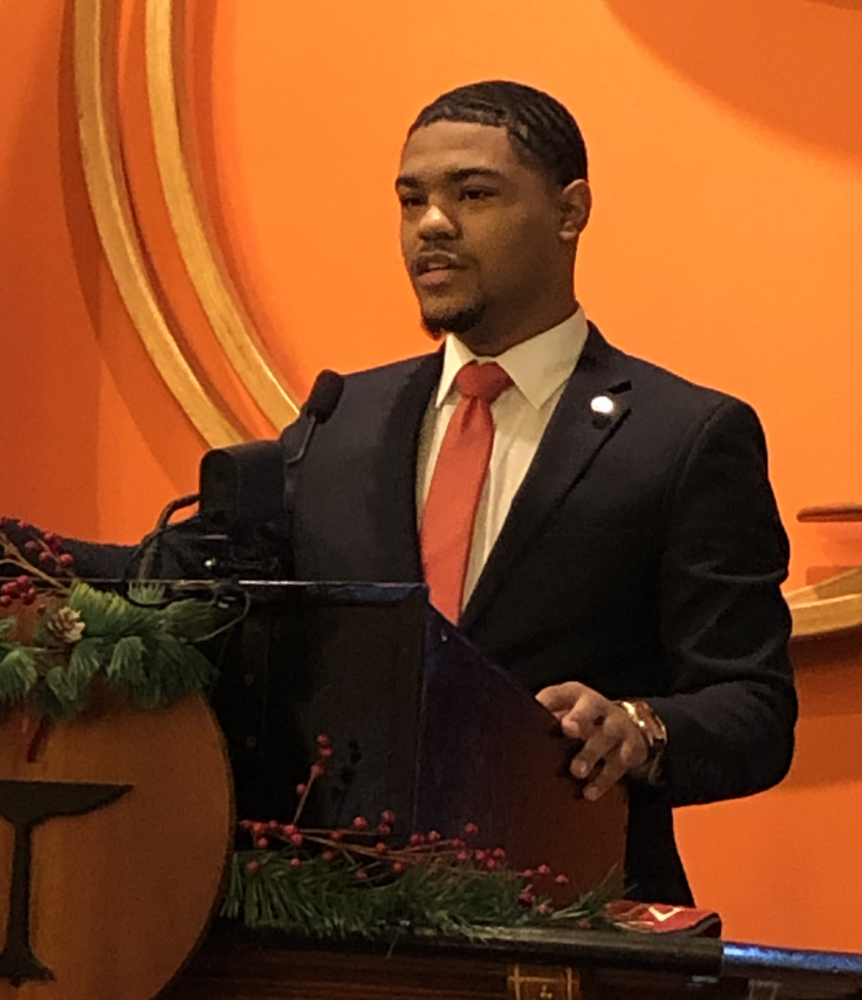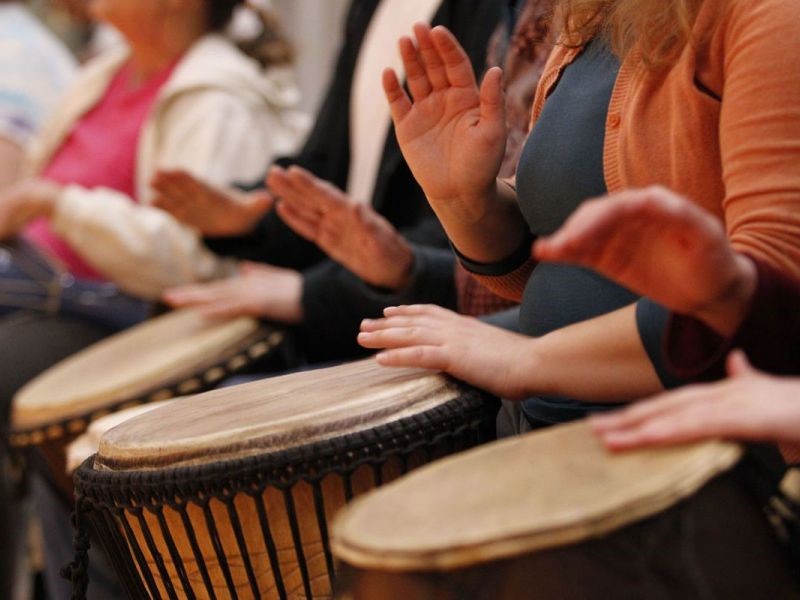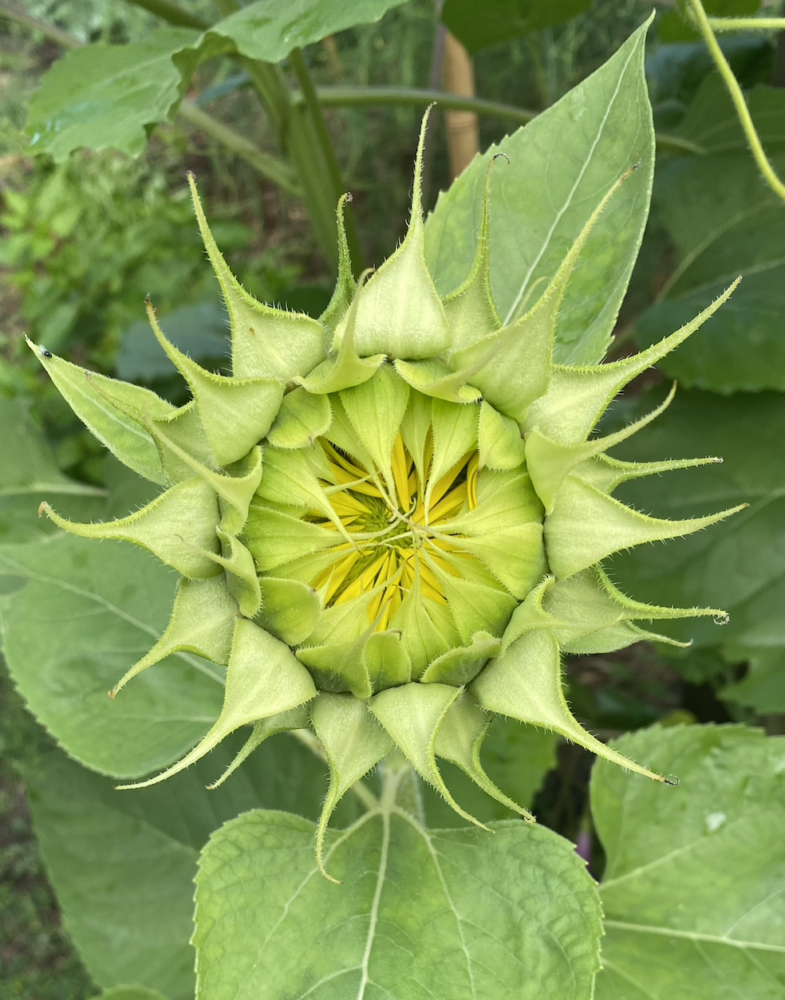Rev. Jim McConnell, Sunday, October 22, 2023
Today’s topic is finding hope. So, I have some good news, some more
good news, some bad news, and some more good news. Before we get
into the good news/ bad news thing, I would like to try to define hope.
Hope, in my opinion, is confidence in the goodness of Being, even if the
circumstances of one’s existence are very difficult. Additionally, I think
hope is a kind of spring board from which we launch ourselves into the
uncertainties of our existence with courage and creativity.
Really, I am not sure how to define hope but I think I know what it looks
like.
45 years ago, I was a student chaplain at a large hospital. It was part of
my training to complete my seminary degree. I was assigned to the
pediatrics ward. At times, it was so difficult for me that I thought I
might have to abandon the whole project of becoming a minister. I had
experiences with several people that still come to me in my quiet
moments.
There was an accident on a remote country road. A young mother, with
two small children in her car, pulled onto a main road from a gravel
country road. She was struck broadside by a driver, who police later
estimated to have been going 85 miles per hour. The other driver and
the young mother’s 8-year-old daughter were killed. She and her 3-year-
old son were knocked unconscious. Because the location was so remote,
there was no one at the scene to help. When the young woman regained
consciousness, she limped three quarters of a mile to a farm house to
make a call to the county police.
When I first met her, three days after the accident, she was waiting for a
surgeon to cut the Achilles tendons in her three-year-old’s legs so that
his legs could relax. She told me that this was necessary as her son was
so badly brain-damaged he would never regain consciousness or again
walk. The rest of his life would be spent in a bed or a wheel chair. After
our talk, I was so shaken I retreated to a bathroom stall to pull myself
together. I, at the time had a one-year-old and a new baby at home. My
wife and I had lost a child earlier in our marriage.
I visited with the young mother, at her son’s bedside, multiple times in
the following weeks. I was so taken by her courage, calm, and
hopefulness, I am still, more than 4 decades later, deeply moved.
After a few visits, I dropped all pretense of trying to be a chaplain. The
last time I saw her, the day her son was to be released from the hospital,
I asked her, “How are you doing this? How can you live?” I think she
knew what I was really asking. I was asking, “How can I live in the face
of this terror?” She replied, “I have my son to love. That is enough for
me.”
So maybe that is what hope is all about, simply finding the courage to
love something or someone in spite of the terrifying possibilities and
inevitabilities of life.
Let’s take a look at the good news, more good news, still more good
news, some bad news, and some more good news.
The first good news is that, according to several studies, people who are
hopeful live longer, healthier, and happier lives. They are also likely to
have more friends, find more satisfaction in their work, be involved in
some kind of volunteerism in their communities and be more generous.
There is more good news. It does not take an act of God to become a
more hopeful person. It turns out that hopefulness is something of a
habit. We can habituate ourselves to hope by doing hopeful things and
directing our minds towards hopeful thoughts. It turns out that
belonging to a faith organization of some kind where you find
supportive and loving community can be very important to making hope
a habit.
It is my opinion that practicing mindfulness, compassionate mind, and
loving kindness are powerful ways to direct our organisms towards
hopeful thinking and acting. Our current Dali Lama has said, “If you
want to be happy, practice compassion.” If you want others to be happy,
practice compassion.” Assuming that a big part of happiness is
hopefulness and that the Dali Lama has some expertise in this area,
suggests that we can find hope when we do small hopeful, loving things,
direct our minds to hopeful, loving thoughts, and encourage others to
hope and love.
Some small loving things you might do to habituate yourself to
hopefulness are: join your church choir, teach a kid to read, pick up trash
alongside the road, write a big check to the World Food Program or
another charity of your choice, drop out of the current culture wars,
consciously make a friend by being a friend, organize your closet, make
an apple pie for a shut-in, adopt a pet, shovel the snow off your
neighbor’s sidewalk, work for peace, appreciate your spouse, lover or
friend and write another even bigger check to the World Food Program.
And still, there is more good news. We now understand that through a
process called Neuroplasticity the immaterial mind can change the
material brain. When we practice hopefulness, our brains actually build
new neural pathways. In a study involving children, it was shown that
the surface areas of the certain portions of the brain, the pre frontal
cortex, the amygdala, and the anterior cingulate cortex increase in
surface area when a child grows in an environment of hopefulness and
loving kindness. There is some evidence that this kind of brain change
also happens with adults who learn, usually with the help of another
caring adult, how to redirect their mental processes towards love and
hope.
Still more good news, when we are hopeful, loving people, we not only
make our selves better, we make the world a better place for all life.
There is no question in my mind that within the next decade we could,
on this planet, eliminate poverty, be well on the way to restoring the
health of the biosphere, eliminate all wars, make sure that every kid in
the world was getting a top-notch education, make available to every
person a diet with sufficient nutrition to sustain them in body and soul,
and provide health care for every person. We could do all these things
pretty easily, if we had the will.
Now, here is the bad news. The reason we don’t do all the things I just
mentioned is because we don’t want to. We don’t want to because many
of us are habituated to some degree to hopelessness and despair. It turns
out that anger, hate and despair are also habitual and when we turn our
organism towards these three, we make ourselves unhappy, and
unhelpful. It is our addiction to despair that is the root cause of most of
our wretchedness: the wretchedness of war, starvation, political division,
poverty, the 12,000 kids under five that die of preventable causes every
day, and environmental degradation.
I have already mentioned the spiritual disciplines of Loving Kindness
and Compassionate Mind as being very helpful in redirecting our
organisms towards the habit of hope. I will add to these the discipline of
mindfulness as a great way to turn yourself away from despair and
towards hope.
Blaise Pascal, the 17 th century French mathematician said, “All of
humanity’s problems stem from man’s inability to sit quietly in a room
alone.” I think he is right. When we are able to sit quietly, really
quietly, we may discover that hope, and creative ways to love sift up
through the floor boards of our psyches and lodge themselves in our
conscious minds. Or, as the old Zen saying goes. “Sitting quietly, doing
nothing, Spring comes and the grass grows all by itself.”
A week ago, yesterday, I had a nice chat with a person, previously
unknown to me, at the public library that inspired the topic for this
service. A few minutes into our chat she mentioned that the minister at
her church had had an affair and she was very disillusioned. When she
found out that I was a minister she said she was looking for a church.
She had already identified as a born-again Christian. When I informed
her, I was a Humanist and not a Christian, she, somewhat tepidly,
witnessed to me about the importance of taking Jesus Christ as my
Savior. I thanked her and affirmed the rightness for her of taking her
leap of faith in the direction of Christianity. I mentioned again, that I
had taken my leap of faith in the direction of Religious Humanism and
that others in the congregation I serve had taken their leaps towards
Christianity, Judaism, Paganism, Nature Mysticism, and Atheism.
We chatted amicably for over an hour. As our conversation was winding
down, she asked “If Jesus isn’t your savior, where do you find hope?
Don’t you think that the only way to overcome all the darkness and the
evils of liberalism in the world is if Jesus comes again?” I replied, “It is
foundational to my Humanist faith that we are the authors of our own
life experience. If you experience your world as full by evil and
darkness it is because you, in some sense, want or need it to be that way.
We do not have control over some events in our lives and there is, for
sure, real darkness and evil. How we live is, however, entirely a matter
of choice. You can choose despair or you can choose hope; It is up to
you.”
We chatted a bit more. As we parted, she gave me a nice hug.













